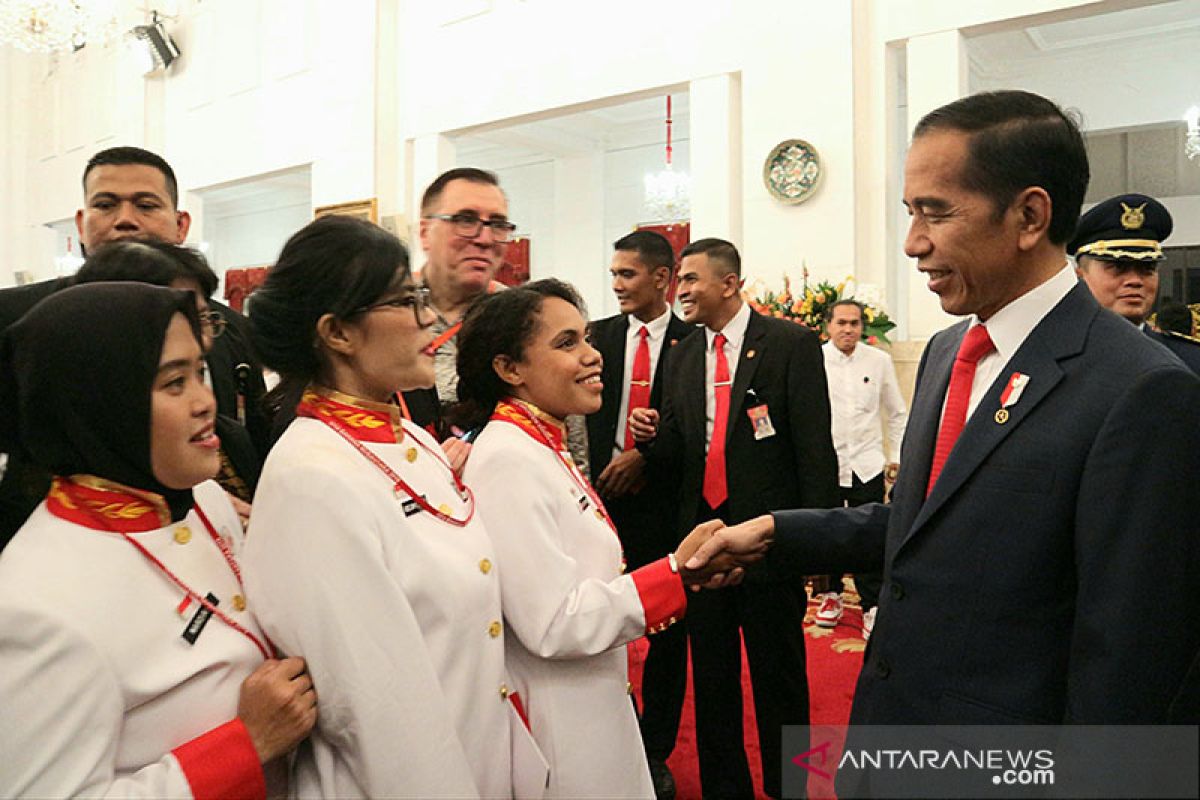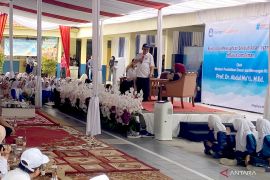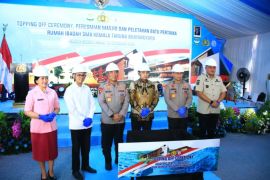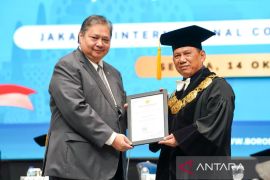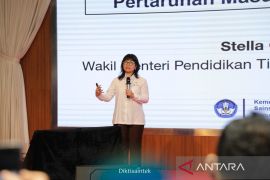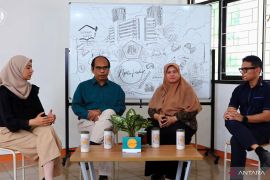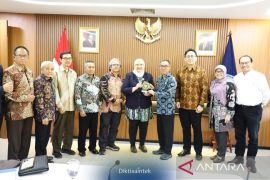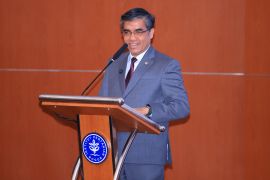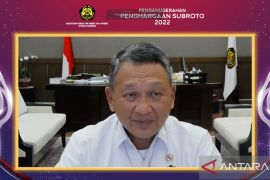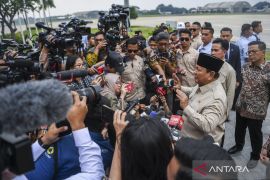His seriousness is obvious as revealed in the government's statement on the bill on the state budget for the 2020 fiscal year and its financial note that he delivered at the House of Representatives (DPR) plenary session on Friday (Aug 16, 2019).
Jokowi, who will again lead the nation until 2024 following his victory in this year's presidential elections, said he believes that the power of improved quality of human resources would enable Indonesia to actualize its vision to be a developed country.
"Through such determination, the 2020 fiscal policy is drawn up with the theme 'A State Budget to Accelerate Competitiveness through Innovation and Improved Quality of Human Resources'," he told the members of parliament.
Related news: Quality human resources will make Indonesia developed nation
Jokowi's noble ambition is definitely not easily achievable due to the fact that Indonesia is still struggling for saving children with stunted growth and the quality of its human resources varies.
As the world's fourth most populous country, Indonesia has yet to be able to put itself into the list of the world`s most literate nations.
John W.Miller's study (CCSU, 2016) shows that the top 10 most literate nations are Finland, Norway, Iceland, Denmark, Sweden, Switzerland, the United States of America, Germany, Latvia, and the Netherlands.
The study of Miller, noted researcher of the Central Connecticut State University, further revealed that Indonesia ranked 60th out of 61 countries. Its rank was just better than that of Botswana but it was far left behind by Singapore (36) and Malaysia (53).
His study synthesized "literacy achievement tests (Progress in International Reading Literacy Study and Programme for International Student Assessment) and literate behavior characteristics (population, newspapers, libraries, years of schooling)" (2016).
Miller argued that a nation's literate behaviors contribute to its success and failure in dealing with the demands of the world's knowledge-based economics.
In terms of quality of higher education, Indonesia also seems far left behind by Singapore, whose leading universities have obtained prestigious positions of best universities at both regional and international levels than those of Indonesia.
In innovation, Vice President Jusuf Kalla has ever expressed his concern saying that Indonesia has yet to be part of global innovation networks.
Related news: Understanding Jusuf Kalla's message to Indonesia
Therefore, as revealed in his recent statement that he delivered at the 2019 Indonesia Development Forum (IDF), Kalla reminded Indonesians not to get trapped in a condition that makes them mere consumers of the world's rapid technological developments.
"We do not want to be just consumers of technology. In its place, we must also be part of innovation. Technology indicates an advancement, but it is also a challenge, as it changes human life and behavior," he affirmed on July 22.
Innovation in Indonesia can only be enhanced if its human resources are good and capable.
Indonesia would be able to have a pool of well-trained and educated human resources only if it were to improve the quality of education for its people, he emphasized.
However, the quality of human resources cannot just be improved through education but it is also related to the people's health condition and nutritional problems.
In this regard, despite Indonesia's tremendous progress in the fight against hunger, stunting from severe malnutrition remains high in the country.
The World Health Organization (WHO) defines children with stunted growth as those whose "height-for-age is more than two standard deviations below the WHO Child Growth Standards median."
In Lamongan District, East Java Province, for instance, cases of children suffering from stunted growth are still reported in the villages of Ganggangtingan and Durikedungjero. In Ganggangtingan Village, eight children experienced stunted growth, while 10 kids with stunted growth were recorded in Durikedungjero Village.
Another serious challenge for Jokowi's endeavors to improve the quality of the country's human resources is domestic and transnational drug dealers who keep making Indonesia be their potential market due to its huge population and millions of drug users.
The value of drug trade in the country is also estimated to have reached nearly Rp66 trillion, and in the drug trade, drug rings not only recruit adults but also teenagers as their couriers.
In dealing with these drug crimes, Jokowi is suggested to send the convicted drug offenders on death row to firing squad because they have indeed threatened Indonesia's future.
Considering all these challenges, Jokowi has no choice but to tackle all the hurdles that potentially make his administration's efforts to improve the quality of Indonesia's human resources get failed.
Related news: Govt allocates Rp1,162 trillion for human resource development
Related news: Government targets reducing stunting prevalence to 19 percent in 2024
Editor: Fardah Assegaf
Copyright © ANTARA 2019
